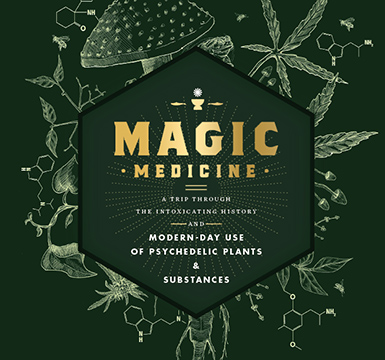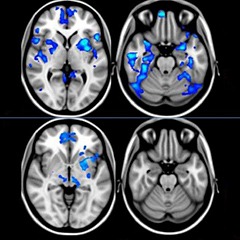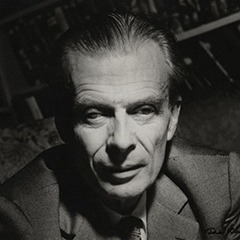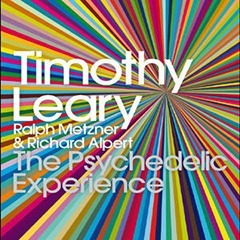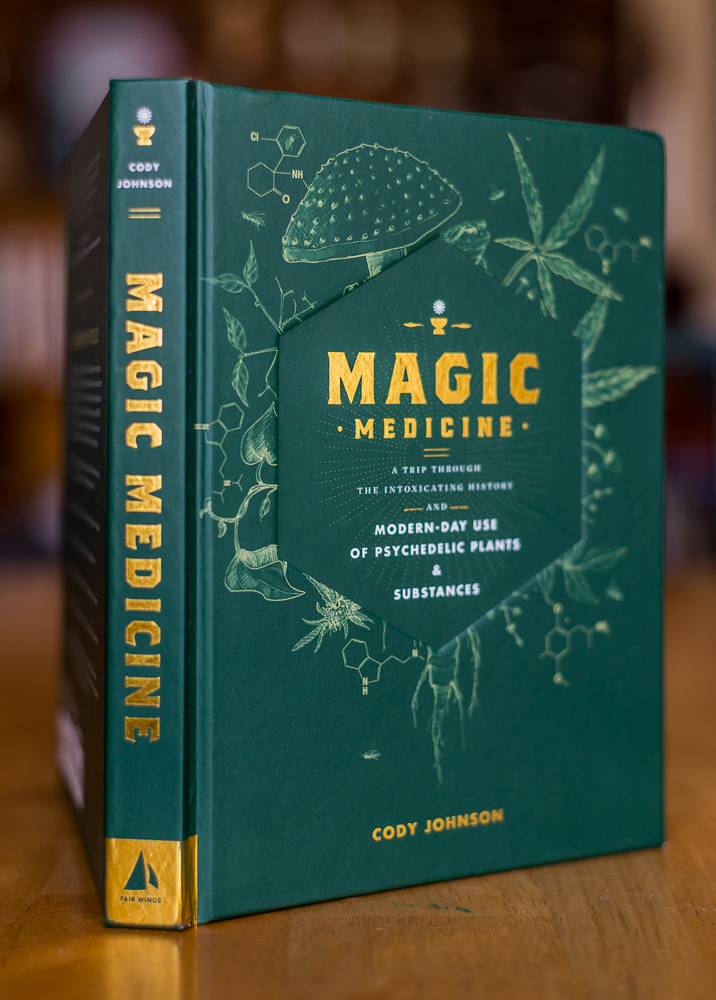Free Book: The Doors of Perception by Aldous Huxley
by Psychedelic Frontier on May 2, 2013 2 CommentsAldous Huxley became a pioneer in the (practically nonexistent) field of modern psychedelic literature in 1954 when he published The Doors of Perception, a short but detailed book about his experience with mescaline. Many people would hesitate to publish a book about such a controversial and personal topic even today, half a century later, but Huxley staked his claim smack dab in the middle of the 1950s. The term “psychedelic” hadn’t even been coined yet (though Huxley would contribute to its creation a few years later).
This book represents one of the first and best-known “trip reports”, at least in the West, placing it alongside classic documents like Albert Hofmann’s 1943 journal, which details the first ever LSD trip. By introducing curious Westerners to the idea of the psychedelic experience, and to mescaline in particular, Huxley opened the doors of perception for generations of psychonauts. They haven’t closed since.
You can read the full text of The Doors of Perception for free as a PDF or a Web page. Or buy yourself a hard copy!
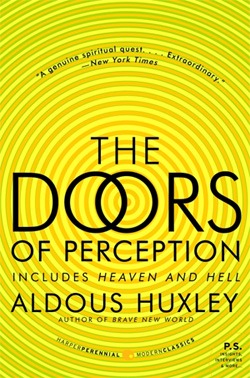
The name of the book—which would later inspire Jim Morrison’s The Doors—comes from this passage, inspired by the inimitable William Blake.
To become fully human, man, proud man, the player of fantastic tricks, must learn to get out of his own way: only then will his infinite faculties and angelic apprehension get a chance of coming to the surface. In Blake’s words, we must ‘cleanse the doors of perception’; for when the doors of perception are cleansed, ‘everything appears to man as it is—infinite.’
Here’s one of my favorite excerpts, about the ultimate solitude of each human being and the limits of communication.
We live together, we act on, and react to, one another; but always and in all circumstances we are by ourselves. The martyrs go hand in hand into the arena; they are crucified alone. Embraced, the lovers desperately try to fuse their insulated ecstasies into a single self-transcendence; in vain. By its very nature every embodied spirit is doomed to suffer and enjoy in solitude. Sensations, feelings, insights, fancies–all these are private and, except through symbols and at second hand, incommunicable. We can pool information about experiences, but never the experiences themselves. From family to nation, every human group is a society of island universes.
Most island universes are sufficiently like one another to permit of inferential understanding or even of mutual empathy or “feeling into.” Thus, remembering our own bereavements and humiliations, we can condole with others in analogous circumstances, can put ourselves…in their places. But in certain cases communication between universes is incomplete or even nonexistent. The mind is its own place, and the Places inhabited by the insane and the exceptionally gifted are so different from the places where ordinary men and women live, that there is little or no common ground of memory to serve as a basis for understanding or fellow feeling. Words are uttered, but fail to enlighten. The things and events to which the symbols refer belong to mutually exclusive realms of experience.
Later, Huxley looks at a bouquet of flowers and has a realization about “Is-ness” or “Suchness”, the inherent quality of existence:
I was not looking now at an unusual flower arrangement. I was seeing what Adam had seen on the morning of his creation-the miracle, moment by moment, of naked existence…
Istigkeit–wasn’t that the word Meister Eckhart liked to use? “Is-ness.” The Being of Platonic philosophy– except that Plato seems to have made the enormous, the grotesque mistake of separating Being from becoming and identifying it with the mathematical abstraction of the Idea. He could never, poor fellow, have seen a bunch of flowers shining with their own inner light and all but quivering under the pressure of the significance with which they were charged; could never have perceived that what rose and iris and carnation so intensely signified was nothing more, and nothing less, than what they were–a transience that was yet eternal life, a perpetual perishing that was at the same time pure Being, a bundle of minute, unique particulars in which, by some unspeakable and yet self-evident paradox, was to be seen the divine source of all existence.
I continued to look at the flowers, and in their living light I seemed to detect the qualitative equivalent of breathing–but of a breathing without returns to a starting point, with no recurrent ebbs but only a repeated flow from beauty to heightened beauty, from deeper to ever deeper meaning.
…The books, for example, with which my study walls were lined. Like the flowers, they glowed, when I looked at them, with brighter colors, a profounder significance. Red books, like rubies; emerald books; books bound in white jade; books of agate; of aquamarine, of yellow topaz; lapis lazuli books whose color was so intense, so intrinsically meaningful, that they seemed to be on the point of leaving the shelves to thrust themselves more insistently on my attention.
If you want to read more, including Huxley’s theory of the human mind as a “reducing valve” that funnels the super-consciousness of the Mind at Large, ruminations on manifestations of “Suchness” (real objects) compared to the emblems we use to symbolize them (like words and paintings), and the meaning of the ubiquity of folded draperies and robes in art throughout history, you’ll just have to read the e-book!
Liked this post? Subscribe to my RSS feed to get much more!

